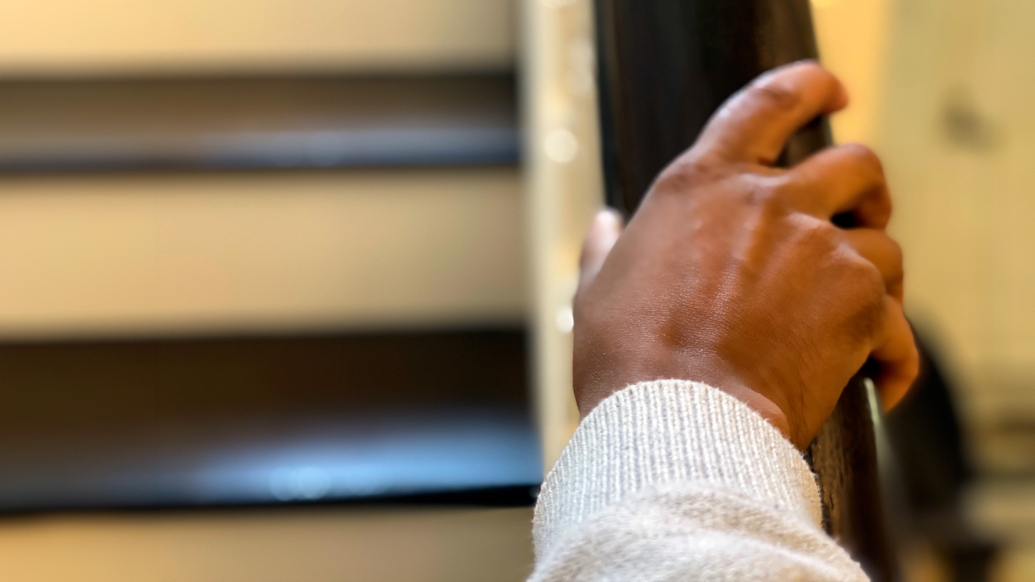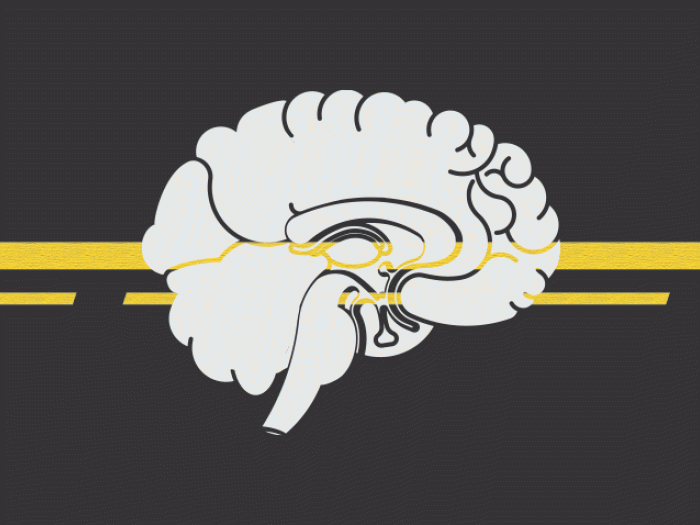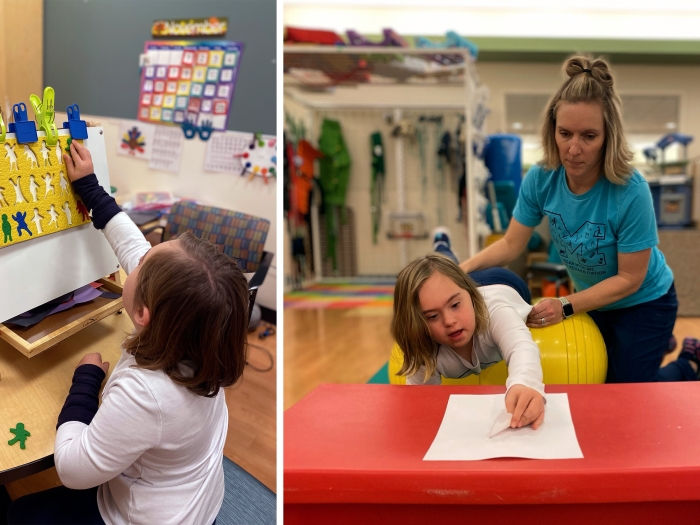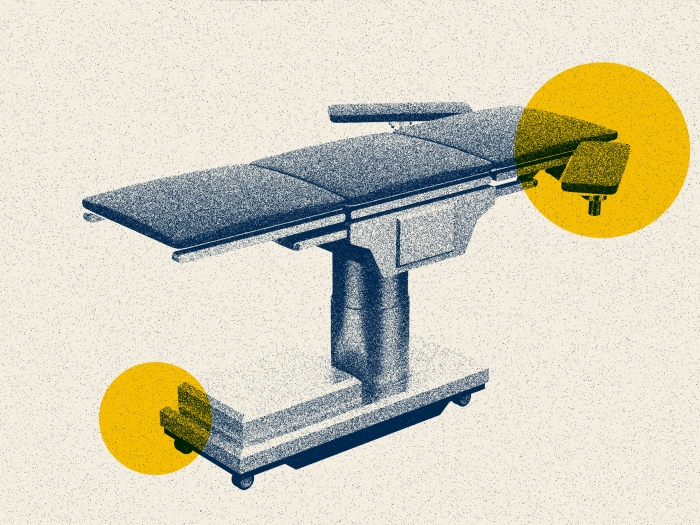More prevention training could help avoid injuries
4:15 PM
Author |

For decades, falling has been recognized as a significant health issue for people with multiple sclerosis.
Multiple sclerosis is the leading cause of non-traumatic disability among young and middle-aged adults in the United States.
The disease is characterized by gait and balance impairments, cognitive dysfunction, high levels of fatigue, depression, and pain. These symptoms are relevant risk factors for falls, which makes them very common among people with multiple sclerosis.
But with advances in disease modifying therapies in recent years, there has been an improvement in the functioning and overall health of those with multiple sclerosis.
Prevalence of falls
In the context of improved therapies for multiple sclerosis, a research team led by the Kratz Lab at University of Michigan Health explored whether there have been commensurate improvements in fall outcomes by examining the nationwide prevalence of falls, injurious falls, and concern about falling.
In their research published in the American Journal of Physical Medicine and Rehabilitation, the team found that in a sample of 965 people with multiple sclerosis in the United States, more than half experienced at least one fall in a six-month period and approximately one-third of those falls resulted in an injury.
“Our results also showed that approximately 90% of people with multiple sclerosis are concerned about falls, but only 9% of our study participants have received a formal fall prevention training,” said Libak Abou, Ph.D., the lead author of the study and assistant research professor of physical medicine and rehabilitation at University of Michigan Health.
Persistent problem
“Our findings essentially indicate that despite decades of fall prevention research among people with multiple sclerosis, falls and associated problems remain very common in this population, Abou said.
“Our findings serve as a reminder to healthcare professionals that they need to discuss the issue of falls with their patients who have multiple sclerosis. More importantly, they need to discuss fall prevention strategies with their patients to maximize their independence and quality of life.”
The findings of this survey-based research aligned with the literature that the researchers were using to base their study on, leading to a stronger argument for needing to work to address the prevalence of falls in people with multiple sclerosis.
Minimize consequences
Abou and his team hope that their results will help shed light on the continued problems of falls in multiple sclerosis and that patients and providers can engage in a mutually beneficial discussion regarding falls, their prevention, and strategies to minimize their consequences should they occur.
Additional authors: Include Chloe McCloskey from the Department of Physical Medicine and Rehabilitation, Kaiser Permanente Health System, Redwood City, CA. Cory Wernimont and Anna Kratz from the Department of Physical Medicine & Rehabilitation, Michigan Medicine, University of Michigan, Ann Arbor, MI. Nora E. Fritz from the Departments of Health Care Sciences & Neurology, Wayne State University, Detroit, MI.
Funding: This study was supported by the Dan Barry Research Program pilot grant from the Department of Physical Medicine and Rehabilitation at the University of Michigan. Dr. Abou was supported by a Mentor-Based Postdoctoral Fellowship Program in Rehabilitation Research (MB-1706-27943; PI: ALK) from the National Multiple Sclerosis Society and by the MICHR K12 program (K12TR004374) from the National Center for Advancing Translational Sciences (NCATS).
Michigan Research Core: Institute for Health Care Policy and Innovation
Citation: “A nationwide update on prevalence of falls, injurious falls, concerns about falling, and fall prevention in persons with multiple sclerosis,” American Journal of Physical Medicine & Rehabilitation. DOI: 10.1097/PHM.0000000000002454
Sign up for Health Lab newsletters today. Get medical tips from top experts and learn about new scientific discoveries every week by subscribing to Health Lab’s two newsletters, Health & Wellness and Research & Innovation.
Sign up for the Health Lab Podcast: Add us on Spotify, Apple Podcasts or wherever you get you listen to your favorite shows.

Explore a variety of healthcare news & stories by visiting the Health Lab home page for more articles.

Department of Communication at Michigan Medicine

Want top health & research news weekly? Sign up for Health Lab’s newsletters today!





